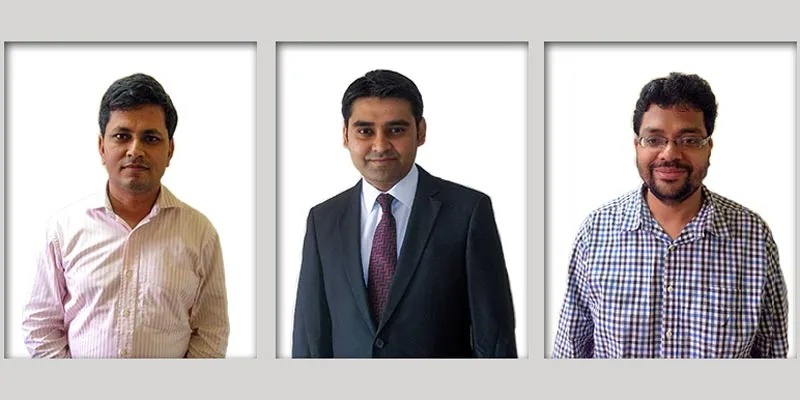SuperZop founders want to make crores of rupees out of kiranas
Out in the streets of Navi Mumbai, Anand Ramulu of Balaji Traders (a grocery trader) visited one of his cousins, who owns an 800 square foot kirana store, to understand his cousin's new marketing strategy. Everyone in his family was talking about the way he was working with a company to increase sales by using tablets. Upon visiting his cousin, Anand realised that his cousin was working smarter with technology. He had invested in a TV screen - to display promotions - a WiFi connection and a tablet.

On prodding his cousin to share his trade secrets, Anand got something to ponder over. His cousin was working with a young company which aggregated the promotions of consumer goods companies on to the TV screen in the store and provided the kirana owner with the ability to understand consumer buying patterns by using analytics to crunch sales data. The next thing you know, Anand signed up with this company to get these systems in place in his store.
The startup helping kiranas gain a 360 degree view of their consumer business and their business with distributors of consumers goods companies is called SuperZop. Today, there are 50 kirana stores working with this startup in Navi Mumbai.
The beginning
The company was born on the floors of a corporate global retailer in Bangalore, where senior executives Darshan Krishnamurthy and Prithwi Singh began to talk about the benefits of delivering technology to mom and pop retailers. The market they were vying for was the 10 million mom and pop retailers that had no exposure to modern retailing technology. Ernst&Young pegs the market opportunity to be $550 billion.
Darshan and Prithwi then met Raghu Allada (Prtihwi's former classmate in IIM-A's batch of 2007 who was now a consultant) to take this idea further. The three founders spent the year 2015 in extensively researching the problems faced by kirana stores. "We found out that kiranas were blind to any form of data, they just ordered things on gut feeling," says Darshan.
The findings of their research were:
- Kiranas did not notice customer behaviour.
- They did not bargain with the distributors to stock items that complement each other.
- They did feel the need to invest cash in data collection.
- Mom and pop retailers were left with no working capital.
- They did not churn their stock better.
A kirana works with 800 stock keeping units at any given point of time and the mind is not capable of telling what sells beyond the obvious. Sometimes a customer buying soup packets could also be buying breads of a particular kind. So a balance between how many breads to stock versus soups is something that a kirana owner can never do because he looks at stock in isolation.
In January 2016, SuperZop was born to solve these problems.
The business model
The three founders began to build a platform which could show live product promotions at kiranas - played on the TV at the store for consumers. This technology is sold to kiranas for a certain fixed sum (the company did not wish to disclose the figure ). This gives a double benefit to kiranas because the FMCG companies promote their products at the store and then consumer buying behaviour is captured live at the store. The kiranas get extra margins for selling promoted products, and they also get data on customer shopping habits as every item purchased is scanned through a tablet-based application.
The FMCG companies pay SuperZop for airing promotions through their cloud-based platform and the kiranas get the added benefit of using data intelligently. Every day and every week, the kirana gets data on what has sold well in comparison with products of a similar category. This enables the kirana shop to bargain with distributors and to work closely with them to stock only those products that sell in their catchment area. "The data can be sold to consumer goods companies, and it can be monetised in several ways," says Raghu.
SuperZop isn’t the only company endeavouring to capture this market. They face competition from the likes of Xlogix, SnapBizz and StockWise. These three companies are building different business models to capitalise on the business opportunity offered by mom and pop retailers. Even with all these companies entering the market, only 0.01 percent of the market is covered. So the opportunity for all of them is enormous.
Venture Capitalists are yet to bet big on such businesses. "The business needs scale and all of us are finding different distribution models to win over kiranas," says Srinibas Behera, founder of StockWise.
SuperZop has invested Rs 35 lakh in the business. Being a seven-month-old company, their revenues are not a fair measure of their success. But their plans are to scale up to more than 500 kiranas in under a year and tie up with as many FMCG companies in India as possible.
The opportunity is gigantic. Hopefully SuperZop can fly its idea to success.



